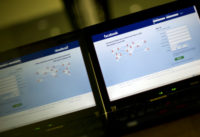Phishing remains a serious security problem. According to some reports, one in every 101 emails are malicious and most of those use some form of phishing as a primary scamming tactic. Most people are aware of phishing, but we only look out for threats when checking email. Criminals, however, are one step ahead. Security experts say phishing has come full-force to texting, and it carries even more potential danger than it does through email. Read full story here: Smishing: A New Security Threat The Targets Smartphones By Text Message | Digital…
Read MoreCategory: World
In A Data Driven Tomorrow, Does Privacy Need To Survive the Future? | Digital Trends
“If you have nothing to hide, you have nothing to fear.” It was an argument we heard a lot in the years following Facebook CEO Mark Zuckerberg’s famous claim that privacy was no longer a social norm. A lot has changed in the eight years since. The web has evolved, new tools make it easier to protect our privacy online, and scandals with social networks and other online entities have made privacy itself a hot topic once again. Read full story here: In A Data Driven Tomorrow, Does Privacy Need To Survive the…
Read MoreElectric Car Drivers Can Now ‘Roam’ In The US And Canada On ChargePoint And FLO Charging Networks | Electrek
A week after announcing a similar deal in Europe, ChargePoint has unveiled a new “roaming partnership” with FLO to allow electric vehicle drivers to use both charging networks across North America with “a seamless charging experience.” Earlier this month, Chargepoint and EVBox launched a similar partnership for the European market. Now they have reached a deal with FLO, which is the leading electric car charging network operator in Canada. Read full story here: Electric Car Drivers Can Now ‘Roam’ In The US And Canada On ChargePoint And FLO Charging Networks | Electrek
Read MoreHere’s How To See If You’re Among The 30 Million Compromised Facebook Users | Ars Technica
The attackers who carried out the mass hack that Facebook disclosed two weeks ago obtained user account data belonging to as many as 30 million users, the social network said on Friday. Some of that data—including phone numbers, email addresses, birth dates, searches, location check-ins, and the types of devices used to access the site—came from private accounts or was supposed to be restricted only to friends. Read full story here: Here’s How To See If You’re Among The 30 Million Compromised Facebook Users | Ars Technica
Read MoreGoogle+ To Shut Down After Coverup Of Data-Exposing Bug | TechCrunch
Google is about to have its Cambridge Analytica moment. A security bug allowed third-party developers to access Google+ user profile data since 2015 until Google discovered and patched it in March, but decided not to inform the world. When a user gave permission to an app to access their public profile data, the bug also let those developers pull their and their friends’ non-public profile fields. Indeed, 496,951 users’ full names, email addresses, birth dates, gender, profile photos, places lived, occupation and relationship status were potentially exposed, though Google says it…
Read MoreFacebook Says At Least 50 million Users Affected By Account Takeover Bug | TechCrunch
Facebook has said 50 million user accounts may be at risk after hackers exploited a security vulnerability on the site. The company said in a blog post Friday that it discovered the bug earlier in the week. The bug is part of the site’s “View As” feature that lets a user see their profile as someone else. Facebook has switched off the “View As” feature in the meantime while it investigates the bug further. The bug allowed hackers to obtain account access tokens, which are used to keep users logged in…
Read MoreClimate Change Is Causing Earth To Wobble On Its Axis, NASA Says | The Weather Channel
Climate change is impacting how Earth spins on its axis, NASA says. Over the past century, Earth’s axis – the imaginary line that passes through the North and South Poles – has drifted about 4 inches, and a decrease in Greenland’s ice mass is the main contributor to the wobble, the space agency has announced. As temperatures increased throughout the 20th century because of humans, Greenland’s ice mass decreased. Rad full story here: Climate Change Is Causing Earth To Wobble On Its Axis, NASA Says | The Weather Channel
Read MoreSmall Nudges Add Up To Big Electric Savings | Ars Technica
Not all electricity is created equal. Utilities prioritize getting power from the cheapest sources available. That means that, as use rises to what’s typically a mid-afternoon peak, utilities end up sourcing ever more expensive supplies of electricity. By the time we reach the use typical of a late afternoon during a heat wave, the utilities have to call in the most expensive forms of power around—typically, the oldest, least-efficient, and most-polluting plants. So cutting down on energy use during these peak demand events is in a utility’s interests. And, since…
Read MoreIf A.I. Doesn’t Replace Your Job, It May Make It Much More Pleasant | Digital Trends
From The Matrix to Wargames and iRobot to Metropolis, movies and novels have threatened us with a revolution of AI and robots for decades, whether that’s through a violent uprising or just replacing us at our jobs. Today, those theoretical dystopian futures seem more realistic than ever. With the growth of smart assistants and advanced machine learning, there is a growing concern that in the decades to come, there may be very little work for humans to do. But for just a moment, let’s set aside our apocalyptic tendencies and…
Read MoreWill Self-Driving Cars Kill Parking? | TechCrunch
Some people have postulated that autonomous ridesharing cars will never need to park and cities of the future will not need street parking, parking lots or parking garages. But parking is far from dead. In fact, the $100 billion market may be poised to grow. We’ve heard from parking startup founders that many Silicon Valley investors have rejected parking as a thing of the past, rallying around alternatives — for example, investing more than $100 million in valet parking startups that didn’t pan out. Even these parking investments are a drop in the bucket…
Read More









